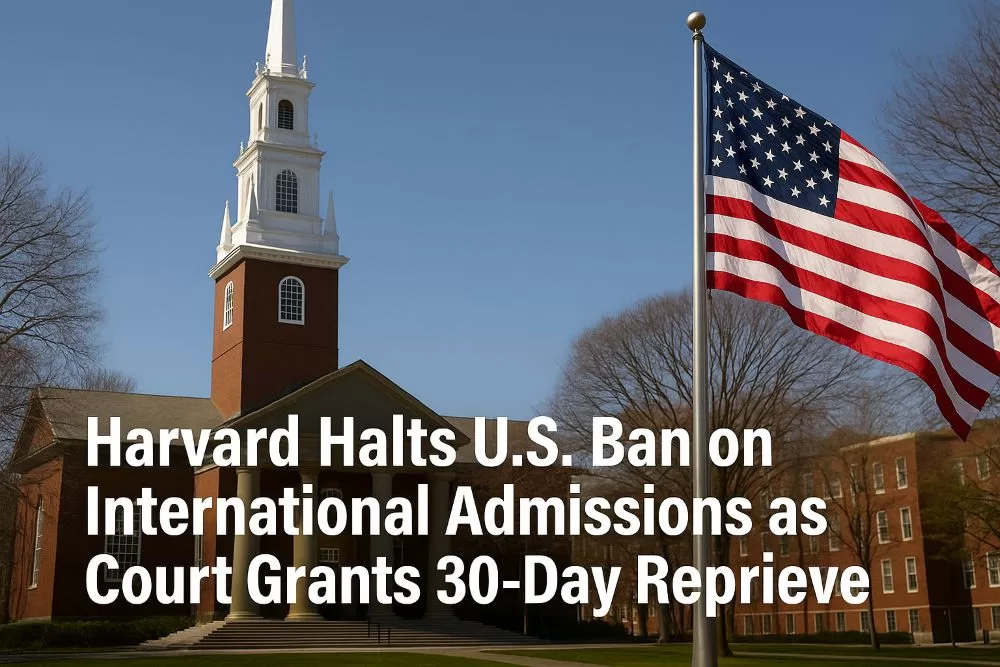
WASHINGTON, May 30 (WSH) — In a significant legal turn, the U.S. District Court in Massachusetts ruled on May 29 to halt the Trump administration’s controversial order revoking Harvard University’s ability to admit international students. The judge, Allison Burroughs, approved Harvard’s request for a preliminary injunction, ensuring the university’s Student and Exchange Visitor Program (SEVP) certification remains valid during ongoing legal proceedings.
Court Grants Temporary Relief, Cites Due Process
The court hearing concluded with Judge Burroughs extending an earlier temporary restraining order and barring the Department of Homeland Security from enforcing its revocation until a full review is conducted. Harvard was accused by the government of fostering antisemitic environments and failing to submit international student data — claims the university firmly denies and has pledged to counter with evidence.
Trump Administration Reverses Course Under Pressure
Under mounting legal and public pressure, the Trump administration issued a notice to Harvard on May 28 allowing a 30-day window to contest the revocation. Legal analysts view this shift as a strategic retreat after public backlash and judicial scrutiny.
White House Continues Pressure: Cap on International Students
Despite offering a reprieve, the administration has continued to push for restrictions. President Trump reiterated that the international student population at elite institutions like Harvard should not exceed 15% and demanded the release of student nationality data.
Currently, over 6,800 international students and scholars are enrolled at Harvard, representing more than 140 countries — amounting to over 27% of the student body.
Legal Showdown Continues
The temporary win marks only one battle in an escalating feud between Harvard and the White House. Since early 2025, the Trump administration has taken a series of punitive actions against Harvard, including suspending billions in federal funding, threatening its tax-exempt status, and auditing its internal policies. Harvard has filed two federal lawsuits in response, with another hearing on the funding freeze scheduled for July.
Implications for Higher Education
This case is widely seen as a bellwether for the future of international education in the U.S. and the autonomy of elite institutions. Legal experts say the outcome could shape how American universities navigate political pressures while maintaining academic openness and global partnerships.




